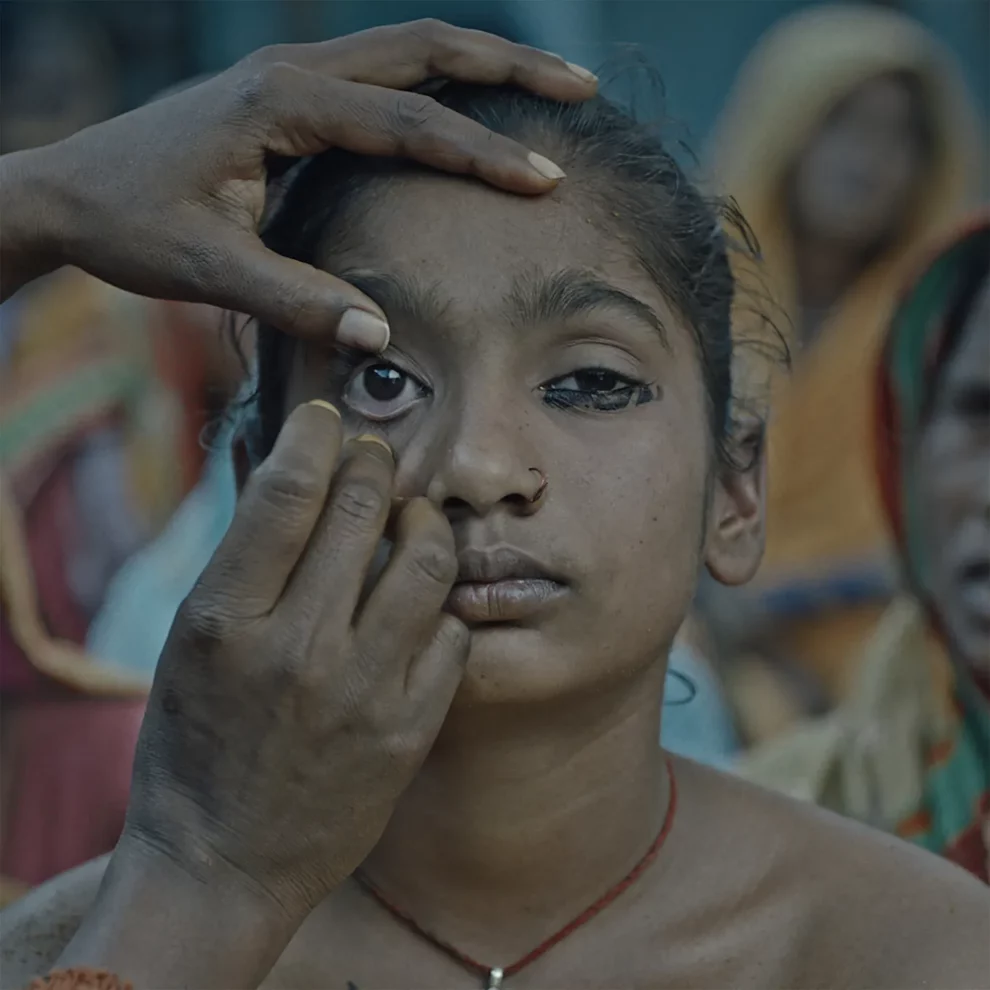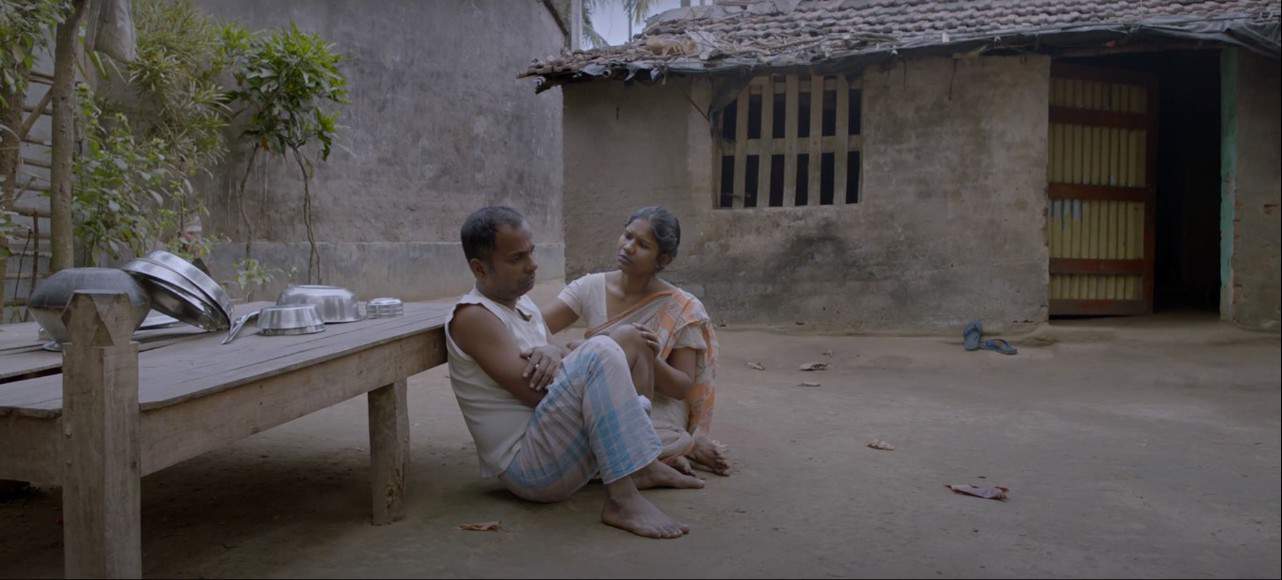Abinash Bikram Shah is a National Award-winning writer and director based in Nepal. His most recent short film, Lori, was nominated for the Palme d'Or at the 2022 Cannes Film Festival, where it won the Special Mention Award. Previous works include “Highway”, which premiered at Berlinale, and The Black Hen, which won the International Critics' Week at the 2015 Venice Film Festival. Shah's most recent film as a writer, Shambhala, was selected at Berlinale this February. He is currently working on his debut feature film.
Lori is screening at Indian Film Festival Los Angeles

In 1:1 aspect ratio, the movie begins with a girl in rural Nepal picking branches from a tree, which she then carries on her head back towards a goat pen in order to feed the animals. The next scene has her, Simri, being combed by her mother in a somewhat harsh fashion, with the girl complaining that she is hurting her. A light argument with another female member of her family, who mocks her for not even having pierced her nose, which is a sign of womanhood apparently in the area, eventually leads to a rather brutal scene, where a number of women force pierce Simri's nose.
The next scene has a group of women singing in the streets of the village, in polyphonic fashion, in a song asking the protection of the Mother Goddess for all women. The next scene, in the family's house, highlights the tension between mother and daughter, with Simri being obviously angry and disappointed, and thus, quite harsh towards her mom. Something of a reconciliation does happen eventually, just before Simri is meticulously prepared for her wedding.
Abinash Bikram Shah shoots a film that aims to highlight the blights of patriarchy in pointed fashion, through an approach that can be perceived as a kind of metaphor. That Simri is portrayed as being treated exactly as an animal, with her having her nose pierced and then groomed and shipped to her future despite the fact that she is definitely young of age, showcases this element quite eloquently. The fact that her mother is always there, but not daring to go against what ‘should' happen with her daughter cements this approach, as she also seems utterly bound by the chains of patriarchy. The way Simri's defiance is completely crashed, adds another notch to the whole approach, cementing the overall remark.
On a secondary level, Shah also presents, in documentary-like style, life in the rural areas of Nepal, with the rituals and the folk singing moving towards this path. This approach is intriguing, but also feels kind of forced, as an effort towards exoticism that could have been handled better. On the other hand, as part of a more analytical portrait of how life is for women in the area, and the connection between patriarchy and folk customs, this approach does work, to a point at least.
DP Ujjal Bastakoti captures the area and the story of Simri with realism, while some long shots will definitely stay on mind, particularly the ones that are part of the aforementioned metaphor, as the one in the field. The 1:1 ratio also works well, while Suraj Paudel's editing results in a fitting, relatively fast pace that fits the narrative nicely.
Ankita Yadav as Simri gives a powerful performance, with her struggle during the nose piercing and her eyes during the marriage showcasing her character's mentality in the best fashion. Sujita Sah, as the mother, is equally impactful, even in a role that is essentially without lines.
Despite some issues here and there “Lori” is definitely a short with impact, with the combination of drama and the realistic approach towards life in the are and patriarchy being its best trait.













